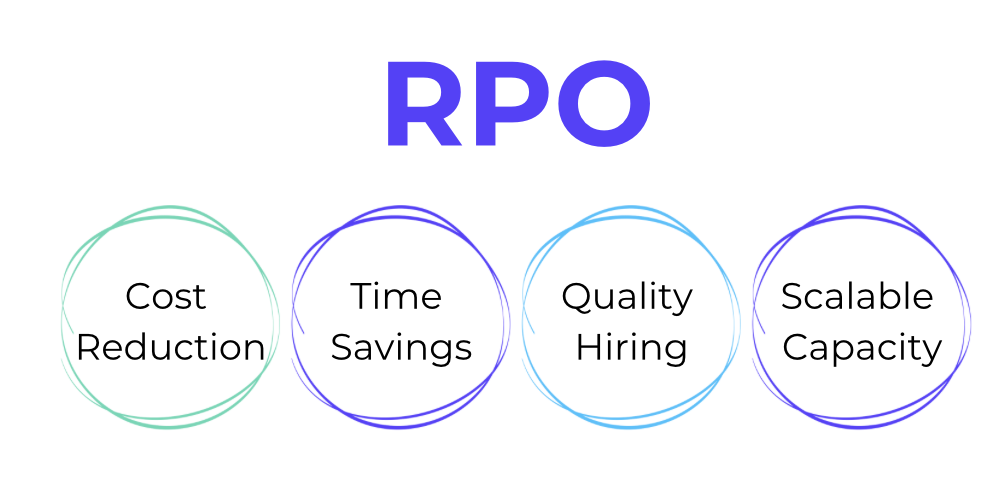In today’s fast-evolving job market, there’s a growing trend towards skills-based hiring, which places a stronger focus on a candidate’s practical abilities rather than traditional qualifications like degrees or titles. This shift is fundamentally changing how companies approach recruitment, resulting in more dynamic and diverse workforces.
Organizations are increasingly recognizing that skills-based hiring can lead to better job performance, role fit, and inclusivity, which is driving widespread adoption of this model.
What is skills-based hiring?
Skills-based hiring is a recruitment strategy where employers focus on a candidate’s specific skills and competencies rather than their formal education or past job titles. For instance, companies may prioritize technical skills, such as proficiency in certain programming languages or software, or soft skills like communication and problem-solving, over traditional criteria like a four-year degree. As noted by SHL, this approach allows companies to uncover hidden talent and focus on candidates’ potential, helping organizations foster diversity, equity, and inclusion.
Why skills-based hiring is gaining popularity
- Access to a wider talent pool
Traditional hiring methods often exclude individuals who may not have formal degrees but possess valuable skills. By adopting skills-based hiring, companies can tap into non-traditional talent pools, including self-taught professionals and those from different socio-economic backgrounds. As Workable reports, nearly 45% of companies in 2024 are expected to drop degree requirements for many roles. - Improved role fit and performance
Skills-based hiring often leads to a better match between the candidate and the job. Focusing on specific, measurable skills means that employees are more likely to succeed in their roles from day one. According to BCG, hiring based on skills is five times more likely to predict job performance than hiring based solely on degrees. By assessing candidates based on real-world competencies, employers can ensure a higher level of job readiness and productivity. - Fostering lifelong learning and agility
As companies face rapid technological changes, employees need to continuously upskill to remain relevant. A skills-based approach promotes a culture of lifelong learning, encouraging employees to focus on acquiring new competencies rather than relying on outdated credentials. This mindset aligns with the needs of industries such as IT and digital marketing, where practical skills and staying current with trends are crucial . - Reducing bias and increasing diversity
Traditional hiring processes can unintentionally reinforce biases related to education or socio-economic background. By shifting the focus to skills, companies can reduce these biases, offering more opportunities to underrepresented groups. According to SHL, a skills-based model promotes inclusivity by leveling the playing field, making it easier for companies to create a diverse workforce.
The challenges of implementing skills-based hiring
While the benefits of this approach are clear, there are several challenges that companies must navigate when adopting skills-based hiring practices.
- Defining clear skills criteria
One of the main challenges is defining the precise skills required for each role. Companies must shift from focusing on traditional job descriptions to crafting skills-based profiles that clearly outline the necessary competencies. - Effective skills assessment
Assessing a candidate’s skills is often more complex than verifying their educational background. Companies must rely on practical assessments, such as tests or simulations, to evaluate real-world capabilities. For example, Boeing created an apprenticeship program for cybersecurity roles that doesn’t require a degree but emphasizes hands-on learning and skill development (
McKinsey & Company) (BCG Global). - Cultural change within organizations
Shifting from a qualifications-based hiring approach to one focused on skills may require a significant cultural change. Long-standing hiring practices can be difficult to overhaul, and companies must invest in training hiring managers and redesigning recruitment processes to fully embrace skills-based assessments.
How companies can make the shift
- Invest in skills assessment tools
Organizations need reliable tools to accurately assess candidates’ skills. Platforms offering practical evaluations, coding challenges, or case studies can help measure relevant abilities in a fair and transparent manner. As SHL highlights, using data-driven assessments allows companies to objectively evaluate competencies, improving hiring outcomes. - Promote upskilling and internal mobility
Fostering a culture of continuous learning is essential for the future workforce. Companies that encourage employees to reskill and grow within the organization can fill talent gaps internally. BCG notes that employees hired through skills-based hiring often experience longer tenures and are promoted at rates similar to those hired based on degrees.
How do we see it?
The shift toward skills-based hiring is more than just a trend; it represents a fundamental change in how organizations view talent acquisition. As businesses prioritize practical skills and competencies over traditional qualifications, they can build more dynamic, diverse, and high-performing teams. While there are challenges, including defining clear skills criteria and developing effective assessments, the long-term benefits of this approach make it a valuable strategy for future-proofing the workforce.
This approach is not only more inclusive and adaptable but also positions companies to better meet the demands of a rapidly changing job market. As SHL, BCG, McKinsey&Company and other industry leaders have demonstrated, skills-based hiring is key to unlocking hidden talent and ensuring long-term organizational success (McKinsey & Company).





















